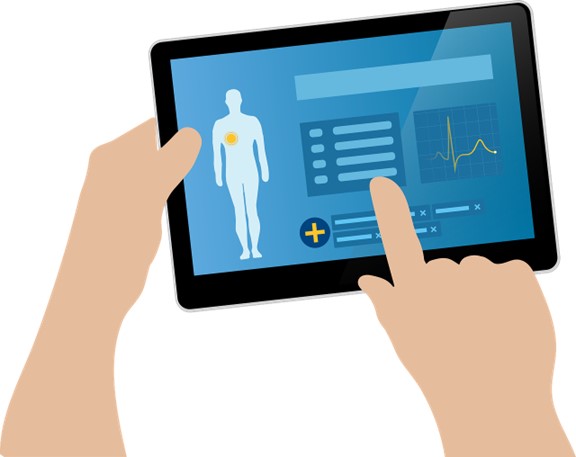10 Essential Features of Modern EMR Systems

Modern medicine and technology are completely enmeshed. The advancements in technology have paved the way for many innovative, and now essential, healthcare improvements.
However, because the changes in healthcare happen very rapidly, keeping up with them can be a full-time job in itself.
For the independent medical practice, the best solution to staying on top of the ever-evolving world of modern healthcare may be to outsource the work to a managed services organization that will work as a partner who understands the unique needs of the modern, independent healthcare practice.
Doctors in need of such a partner, though, should be sure that any managed services provider they are considering can offer them at least the ten following features.
1. A Cloud-Based EMR
A cloud-based EMR is a vital part of any modern medical practice. While any EMR can offer storage and management of patient data, one that is cloud-based can go so much further. These EMRs offer greater accessibility and availability and make the necessary communications with other medical facilities easy and reliable.
Because they are based in the cloud, any and all necessary updates and fixes can be handled immediately, with little to no downtime. Other features, like ePrescriptions and patient portals, are other advantages of having a cloud-based EMR.
2. Convenient Mobile App
Nothing makes the life of an independent doctor easier than having access to an easy-to-use, full-featured mobile app integrated into their EMR. These apps allow doctors and their staff to access patients’ records, test results, scheduling, and many other aspects of their daily work life from their smartphones.
With a mobile app, there is no longer a need to linger at the office or lug around a laptop in order to catch up on paperwork or stay connected to patients.
3. Care Management Tools
Care management tools improve the quality of care and increase the efficiency with which it can be provided. These tools provide clear pathways for the treatment of and recovery from ailments and injuries. They also provide transparency for the patients and the insurers who cover their care.
When everyone on a team, including the doctors, staff, patients, and insurers, all know what to expect, the caregiving process runs much more smoothly.
4. Incentive Program Support
The value-based healthcare programs offered by Medicare can be a boom or a bust for an independent healthcare provider. If handled correctly, these programs can bring in more revenue. If handled poorly, these programs can cost a practice a great deal of money.
Well-developed and updated cloud EMR systems should be able to provide a medical practice with all of the tools and support they need to reach the organizational and efficiency goals set by an incentive program. This should set practitioners on the path to earning bonus payments at the end of each year.

5. Automated Referral Thank You Notes
A cloud-based EMR system should give any practice the ability to automatically send thank you notes to a patient’s referring physician. These little gestures help to keep a practice on the referring doctor’s mind.
When presented with another patient in need of specific care, the practice that sent a thank you note is much more likely to get the referral.
6. Streamlined ePrescription Tools
Anything that can make the busy day of a doctor and their staff just a bit easier is a welcome feature.
High-quality EMR systems should have ePrescription tools fully integrated into their software. These tools allow a doctor to order prescriptions, submit that order to the appropriate pharmacy, and alert the patient that the prescription has been sent, all using one tool and taking just a few steps.
This streamlining of the entire process not only increases the efficiency of the prescription-writing task; it also decreases the chances that prescriptions are written for the wrong medication or issued to the wrong patient.
7. Integration with Controlled Substances Databases
Prescription drug monitoring programs (PDMPs) have been created by the CDC to help check the overprescribing of opioid-based pain killers. An EMR should have any relevant state or federal PMDPs integrated into its software.
These programs not only monitor which patients are receiving prescriptions for narcotic painkillers. They also, when properly integrated into a practice’s EMR, alert a prescribing physician about patients who may be abusing these medications. Receiving these alerts before the prescription is processed and distributed can protect the doctors, pharmacists, and patients.
8. Appointment Reminders
It doesn’t matter how many appointments a doctor sets: If too many patients fail to show up for their scheduled appointments, a doctor may be facing financial troubles. Empty exam rooms are costly, and overbooking to avoid them can lead to other stressful situations.
A quality EMR program should offer its users the opportunity to effortlessly send out emails, text messages, or phone calls to remind their patients about upcoming appointments.
9. MIPS Support
Medicare’s merit-based incentive payment system (MIPS) was created to encourage medical practices to streamline their processes, improve the quality of care given, and reduce costs. There is some debate whether this system is actually helping to achieve these goals, but there is no debate about how much of a headache it can be for medical professionals to keep up with the guidelines set by the system.
To add to the frustration of doctors and their staff, the regulations and guidelines are updated every year. A fully functional EMR program should offer the independent medical facility all of the tools and support they need to navigate and succeed with MIPS.
10. Billing Tools
Billing is simultaneously one of the most vital and hated aspects of healthcare. Handled effectively and efficiently, though, billing will provide a constant and reliable revenue stream. In contrast, poorly handled billing practices can kill a practice, regardless of how good the care offered is.
Any managed services organization that offers EMR to their clients should also provide them with billing tools and support as a part of that system.
Does Any Managed Services Organization Offer All of these Features in Their EMR?
Yes! TRIARQ Health has been meeting the technology needs of independent physicians since its inception, and they have learned a thing or two along the way.
By listening to what would make the lives of our clients easier, they were able to create a full line of software and managed services platforms custom-built to meet the specific needs of independent medical practices. Their QSuite EMR offers all of the above-listed features and more.
To find out exactly how TRIARQ can help a medical practice thrive and grow in the modern medical landscape, check out our QSuite EMR page or contact us today!
